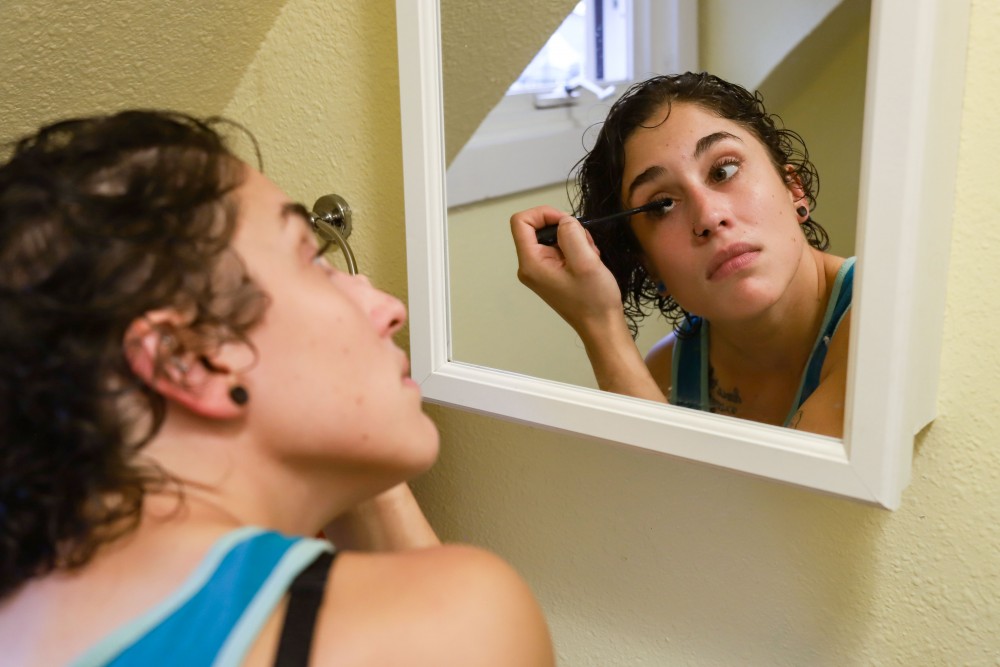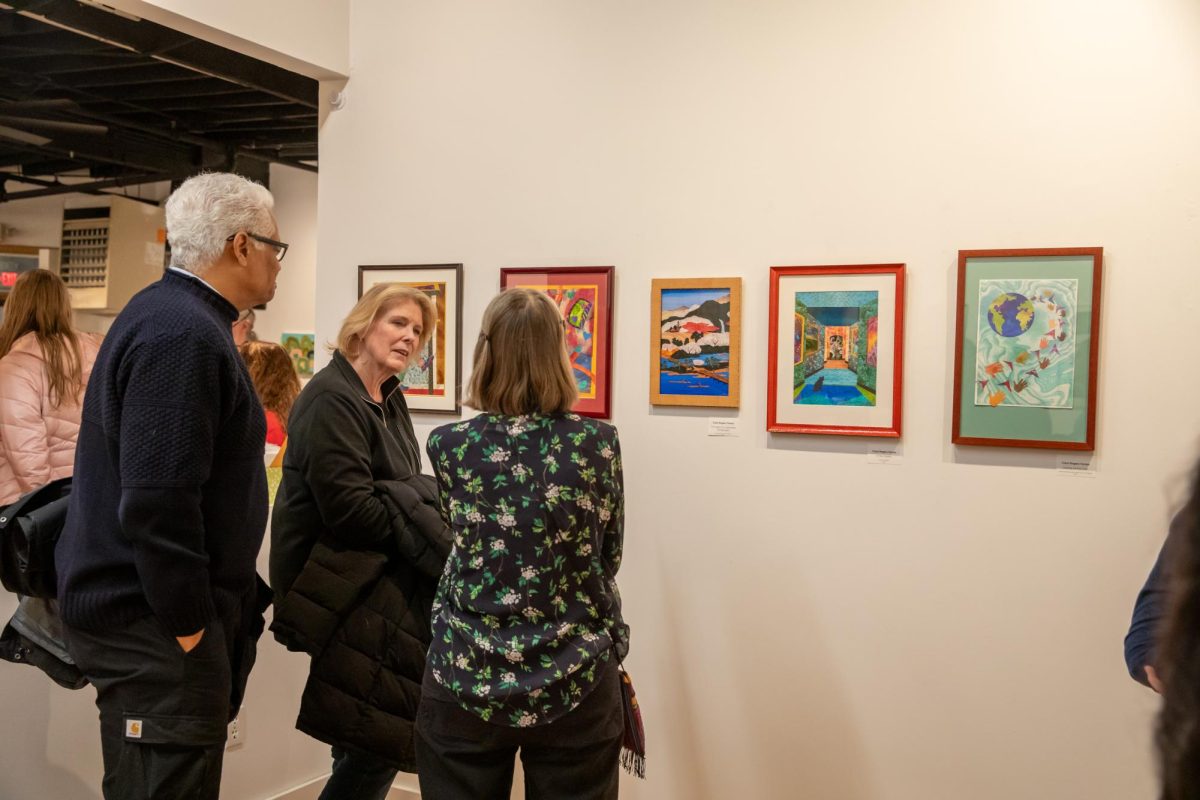Editor’s note: this piece does not adequately represent members of the 20% Theater Company responsible for Queer Prom. Marcela Michelle, Chair of the Board of Directors for the 20% Theater Company, played a significant role in creating the event described in this article.
Donning floral suit jackets, shimmering ball gowns and cropped tank tops, attendees of the eighth annual Queer Prom crowded the dance floor of The Bird bar on Saturday night.
Hosted by the 20% Theatre Company, which employs and produces plays by female, non-binary and transgender artists in the Twin Cities, the event offers a space for LGBTQ adults to experience prom in an entirely new way.
“The opportunity to dress up, to have photos, to have more of a ‘prom-themed’ evening just seemed like something that could really mean a lot to a lot of people who may have not had that opportunity when they were of the typical prom age,” said Claire Avitabile, artistic director and founder of the 20% Theatre Company. “It’s a celebration of community, of queer and trans people to be their true authentic selves [and] a safe space for folks to dress up the way they want to and be together.”

Complete with a DJ, a photo booth and live drag and burlesque performers, Queer Prom was a space where the queer community could recreate, and often redo, their high school prom experience.
Avitabile recounted her own high school prom night, where she was not out publicly and ended up attending prom with a male date instead of female.
She said Queer Prom felt like a second chance. It was an opportunity for her to dress up with her partner and take photos with someone she wanted to be with, not someone she pretended to be with.
“For a number of people I think there’s a very similar story there,” she said. “It’s giving people the opportunity to have a do-over and make the night their own, whether they’re doing it for the first time or the tenth time.”

20% Theatre Company curator Taja Will said Queer Prom was especially important to her not only because it raised money for the company, but also brought queer people together.
“This type of fundraising event is really important because it does the dual job of bringing in the dollars and also community,” Will said. “I feel like there aren’t actually that many times the [queer] community gets to see each other [but] this [event] provides a larger space where we can meet each other.”
Marisol Herling, Will’s friend and roommate, said it can be difficult to find an inclusive space like Queer Prom because many gay bars cater to specific demographics, which can be exclusive to people that don’t identify as gay or lesbian.
“Sometimes it is hard for some people to find their pocket where they feel more comfortable,” she said. “To have a space [where] people who don’t feel like they fit into any of those [categories] … it’s just somewhere where people can be unapologetically queer and have fun and know that they can bring whoever they want or be themselves.”
The event was 18+ with many attendees in their 30s or 40s.
Avitabile said younger people, especially in metropolitan areas, may now be more comfortable bringing whomever they want to their high school proms, but many of the older attendees weren’t able to do so until now.
While prom-goers sipped cocktails at the bar, posed for photographs and hit the dance floor, it was clear the event wasn’t focused on being the best-dressed or about electing a prom king or queen.
“I think [Queer Prom’s] a good opportunity for reclamation,” said Will. “As adults, doing it and redoing it the right way, and being okay with redoing it— I think that’s important for us.”














